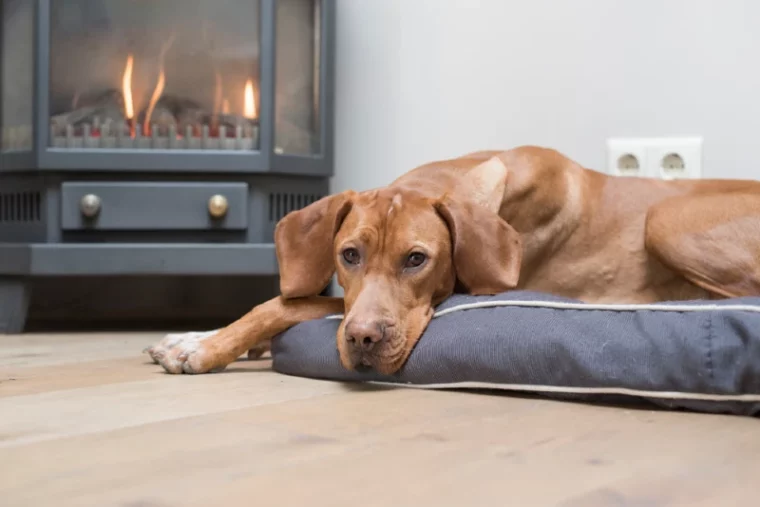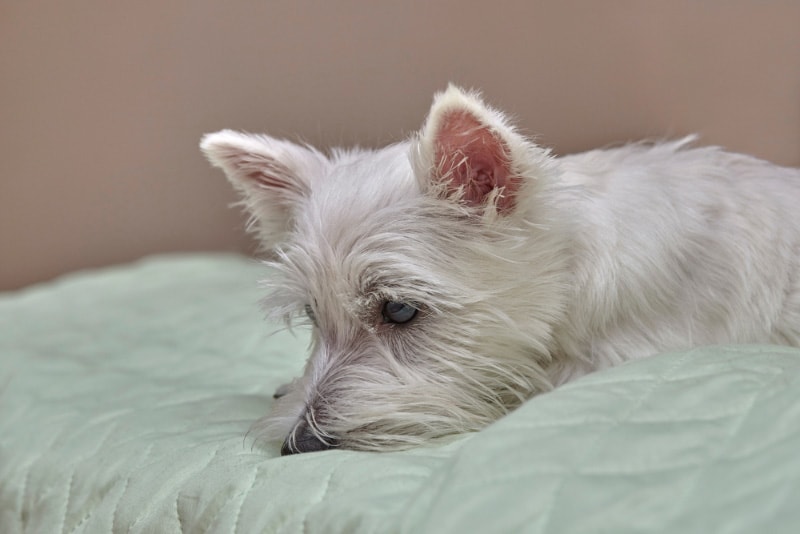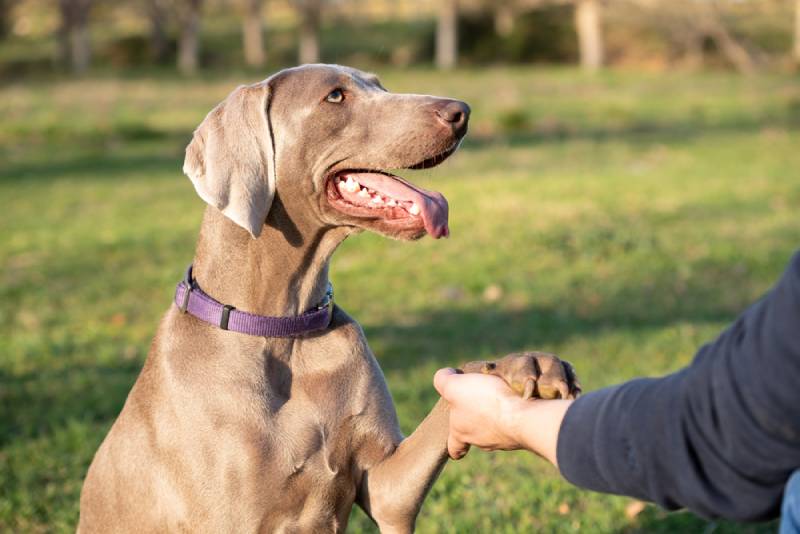
Dogs are known as being man’s best friend and are commonly perceived as being loyal and outgoing people lovers. However, just like humans fall into a spectrum of introversion and extroversion, dogs can also have more “introverted” personalities.
Being an introvert is a personality trait we use more commonly to describe human behavior, because introverts are characterized as those who are typically reserved or quiet, enjoy spending time alone, and who gain energy through solitude and quiet. Whether a dog gains energy through being alone is impossible to assess but we can use introvert to mean shy or reserved, behaviors that can be assessed in dogs more easily.
Introversion in dogs can be caused by a combination of nature and nurture, and introversion is a normal personality trait for some dogs. It’s helpful for dog owners to be aware and knowledgeable about their dog’s social preferences, as it’ll only help to strengthen the bond shared between dogs and their humans.
Is My Dog an Introverted Dog?
Introverted dogs, or shy dogs, tend to have a more reserved personality. They may only enjoy being around their family and may not like playing or interacting with very many dogs. Introverted dogs often prefer going on solitary walks rather than visiting the dog park or going to doggy daycare.
It’s important to note that some dogs may be social with humans but not with other dogs, or they may enjoy playing with many dogs and not show much interest in new people or strangers. These preferences can often be attributed to past experiences that dogs have had with humans and other dogs.
Other factors that can affect a dog’s level of introversion include the quality and amount of early socialization the dog has had as a puppy and traits they’ve learned from their parents. Your own personality and preferences may impact your dog’s introversion. It’s not surprising for introverted humans to have dogs that also have reserved or shy preferences.
Introversion can be a normal and inherent quality in dogs, and it’s a trait that doesn’t need to raise concerns for dog owners. In fact, understanding your dog’s introversion can help you take better care of your dog and be a better advocate for them. For example, rather than planning an outing to a crowded dog beach where your pooch will likely feel over-stimulated and overwhelmed, you can take them on a solitary hike or visit the dog beach when it’s less busy. This will prevent your dog from entering into stressful situations where they may enter a fight or flight response, which may contribute to them developing behavioral issues.

Differences Between Introverted Dogs and Fearful Dogs
Sometimes introversion and fearfulness in dogs can appear to be the same thing. However, it’s important to note that introversion is a personality trait, while timidness can impact a dog’s quality of life negatively and lead to behavioral issues.
Dogs that are overly fearful or anxious can feel distressed when put in new situations. They may be afraid of humans or other dogs and can whine, growl, or bark at them when they get too close. Nervous dogs may also avoid making eye contact, have lower posture, and tuck their tails. Some dogs that feel they’re in danger can also lunge at whatever they perceive to be a threat to them. These are often referred to as reactive dogs.
There are many reasons why dogs may be timid or anxious, and they often have to do with a bad experience in the past. These negative experiences can cause them to feel anxious whenever they encounter another similar experience.
What to Do If Your Dog Is Timid or Anxious
If you notice that your dog has more timid or anxious traits, it’s recommended to work with a certified dog trainer or veterinary behaviorist to increase your dog’s confidence and work out where this behavior has developed from. A dog trainer can help you identify your dog’s triggers and develop a training plan that provides a route to recovery for your pup.
It’s very possible for your dog to learn to become more confident when the training is done appropriately, kindly, consistently and gradually. In fact, some dogs may become more social as they’re gently exposed to new environments, humans, and other dogs. Some dogs may remain introverted, but not frightened and reactive, and they won’t engage as easily in aggressive or anxious behaviors when they’re in uncomfortable situations.

Can Certain Dog Breeds Be Introverted?
Some breeds of dog have expected temperaments, but of course it’s possible for some dogs to have personality traits that fall outside of this. For example, you do find Labradors that don’t enjoy chasing a ball, but it isn’t all that common. However, it’s also worth noting that some dog breeds were intentionally bred to have more independent and solitary personalities, so these breeds are more characteristically aloof and shy.
For example, many dogs that were specifically bred for guarding purposes tend to be naturally reserved. Akitas, Anatolian Shepherds, and Doberman Pinschers are all examples of guard dog breeds that tend to be wary of strangers. Some working dogs were bred to be able to work independently. The Australian Shepherd is an excellent example of a dog breed that was bred to herd livestock. Their independent personalities and intelligence make them reliable and trustworthy herders and they pay attention to their work and their owner’s commands, and very little else. They could be described as introverted as they are not driven to play with large groups of other dogs and aren’t interested in socializing with loads of people either.
Conclusion
Introversion or reservedness is a normal personality trait and social preference for dogs to have. Dog owners shouldn’t push their dogs to become more social, but it’s important for them to spot the difference between having an introverted personality and being a timid or fearful dog. Introverted dogs just need their routines to be managed appropriately for them, where fearful dogs can really benefit from some professional behavioral help.
If you have any concerns about any behaviors your dog exhibits, it’s recommended to enlist the help of a certified dog trainer or veterinary behaviorist. Working with these professionals can help you get to know your dog better and develop a personalized training plan that will boost your dog’s confidence and not let anxiety or nervousness lower their quality of life.
Featured Image Credit: mveldhuizen, Shutterstock







